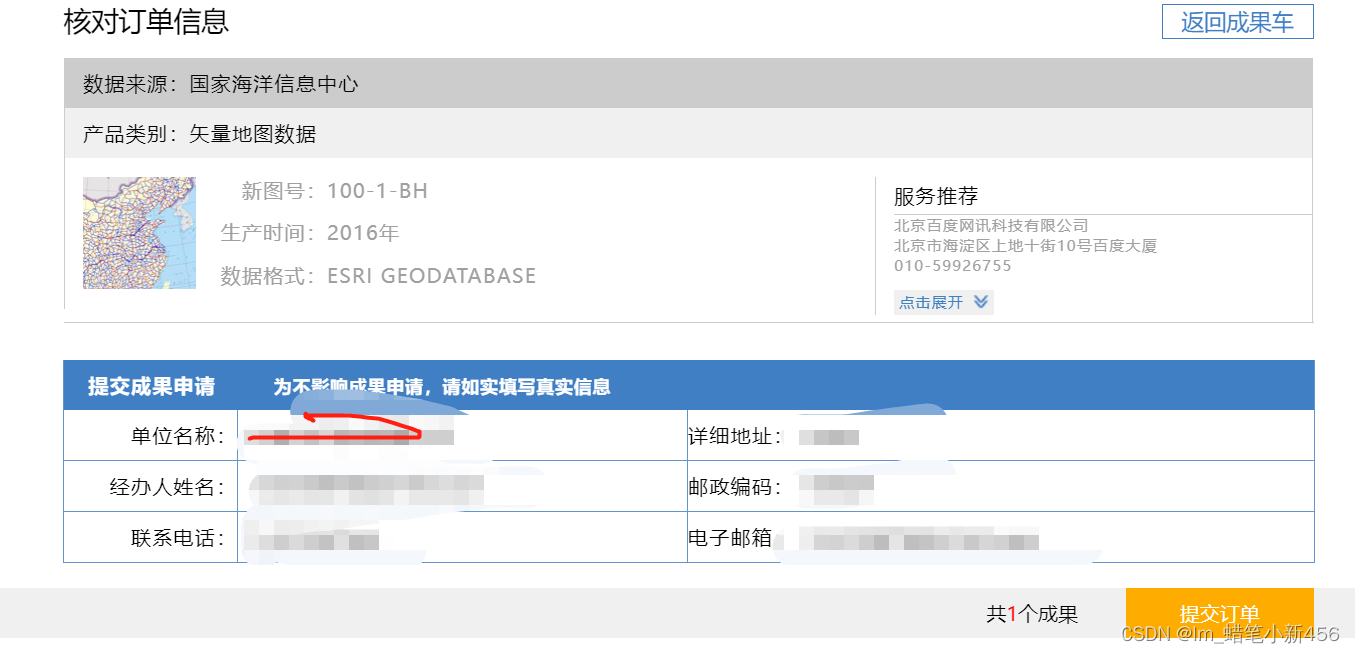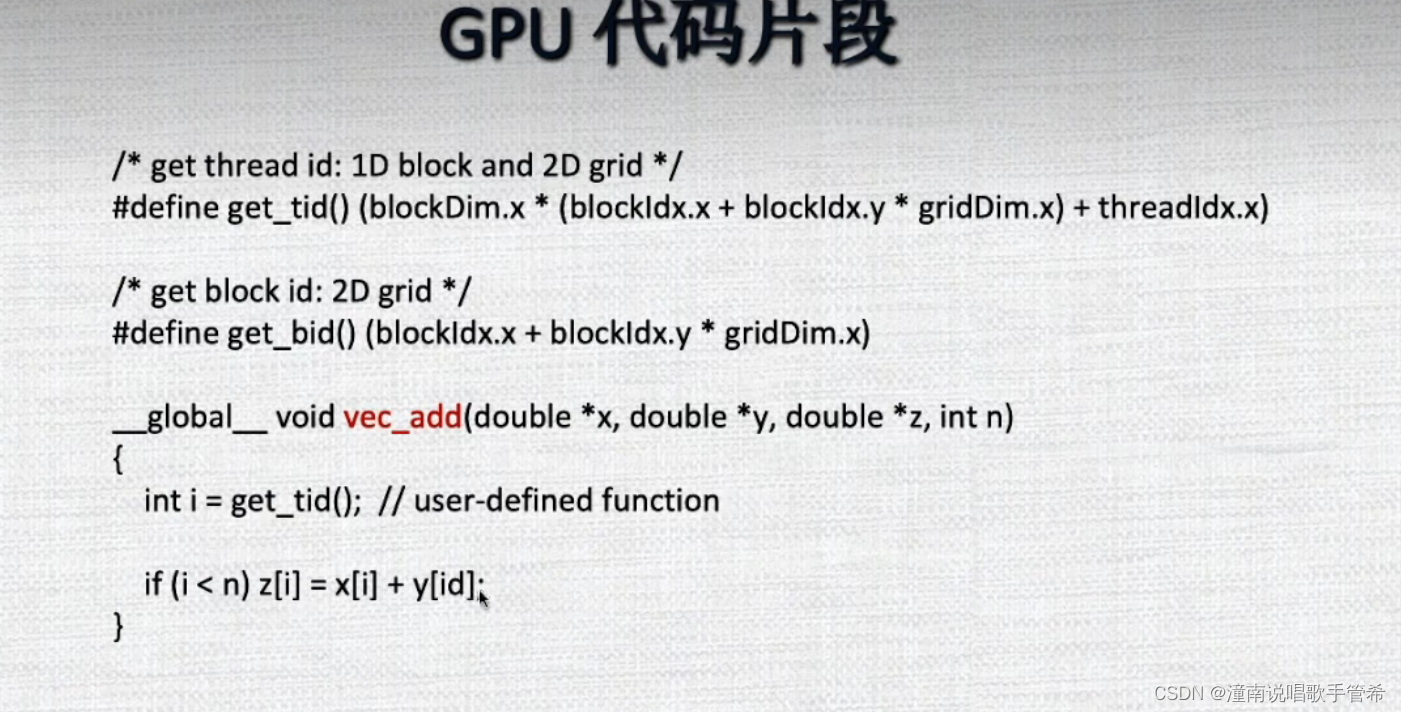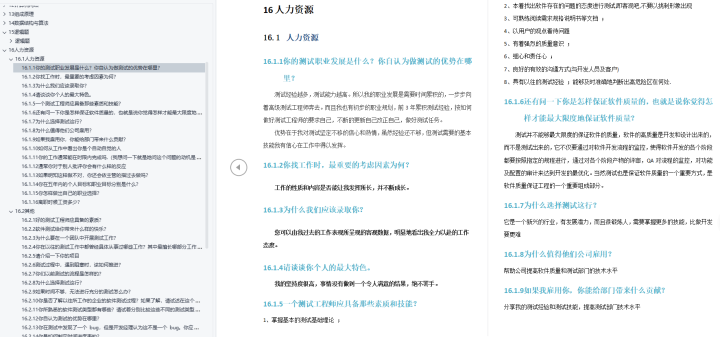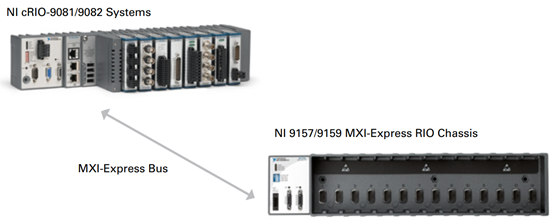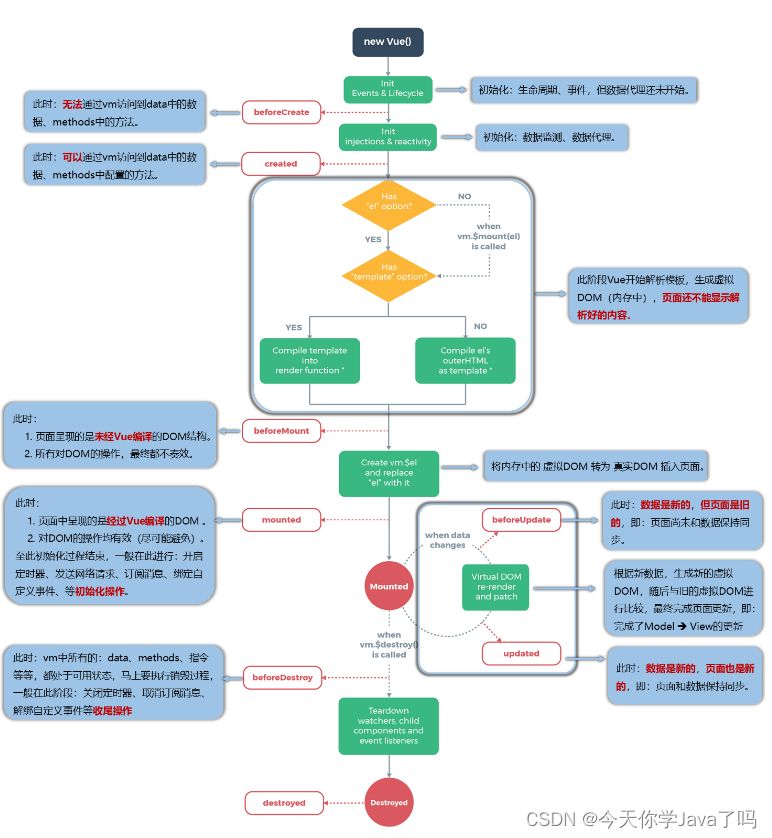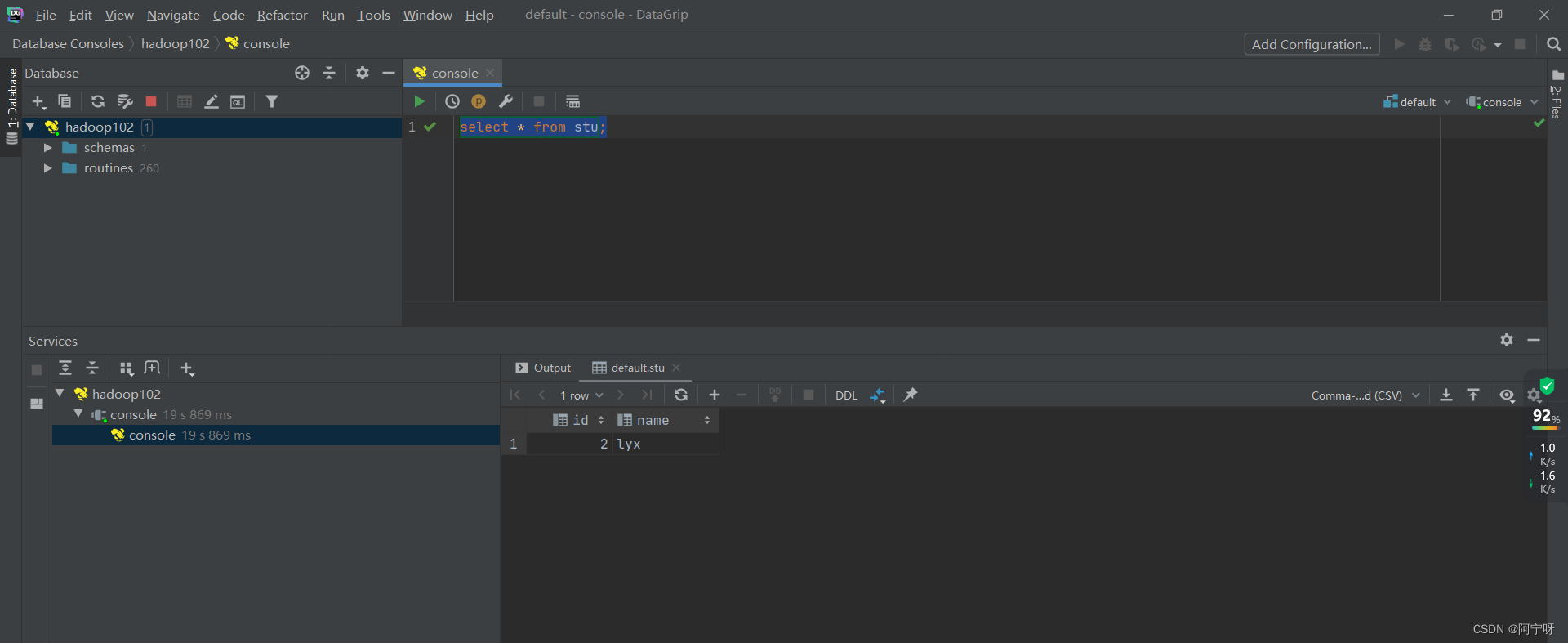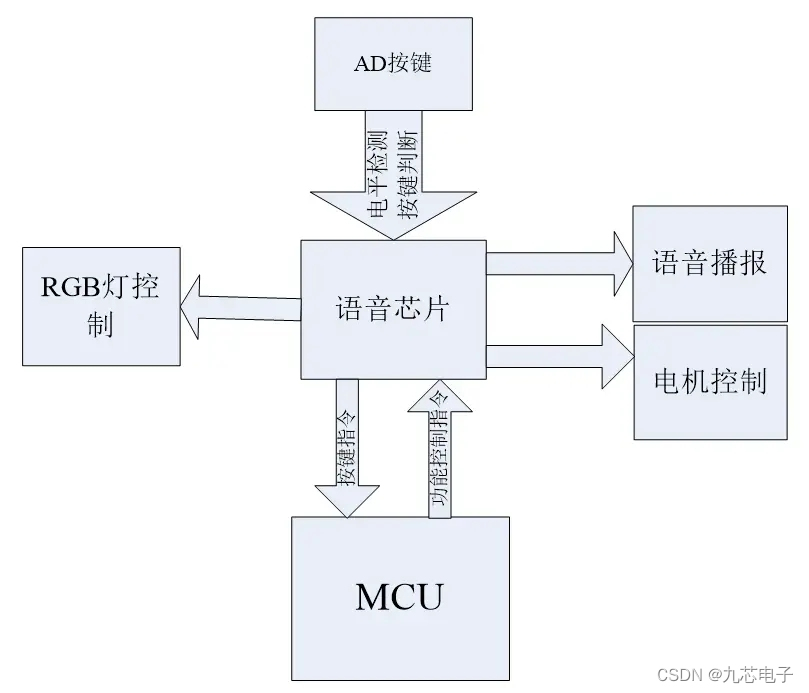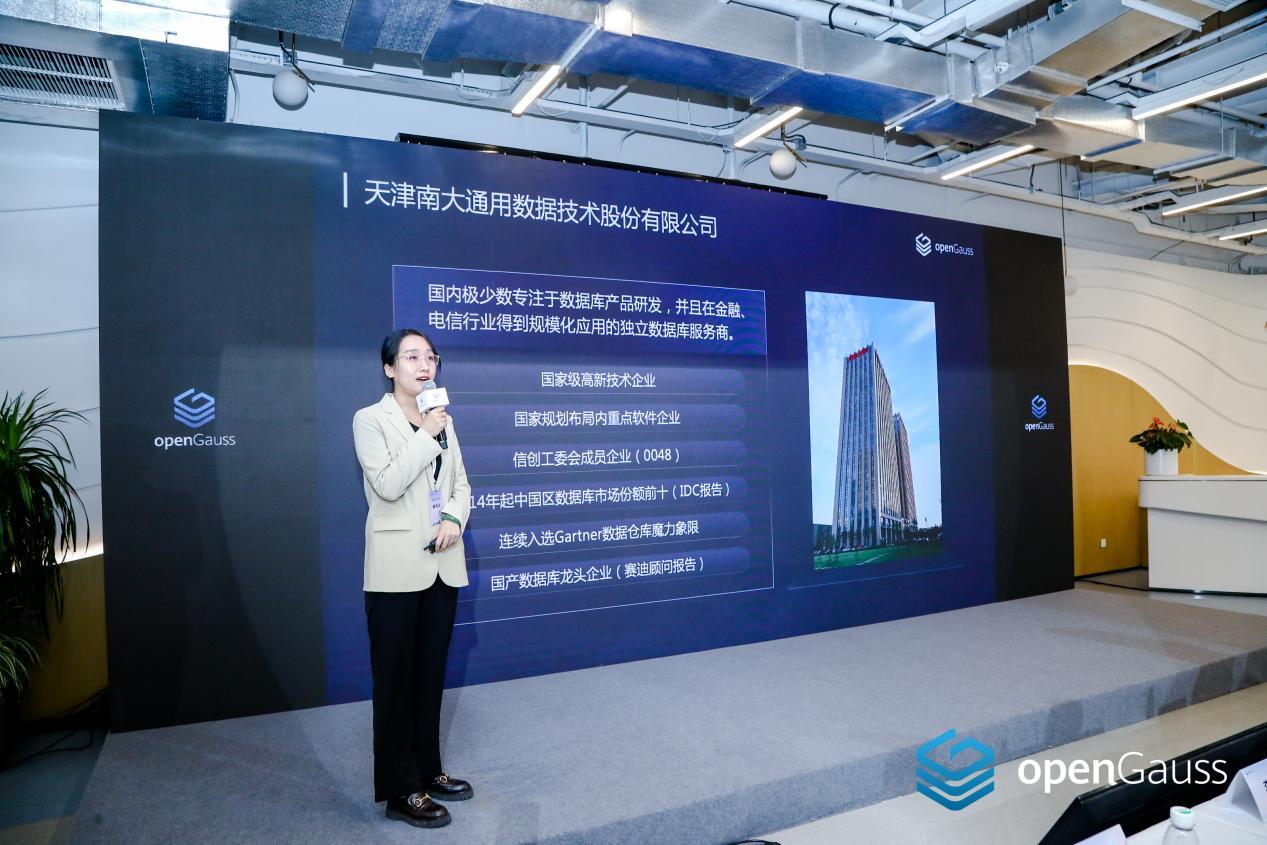一、前言
OpenStack云平台搭建需要两个节点,一个是controller(控制节点),另一个是compute(计算节点)。
控制节点(controller)规划如下:
一块200G的硬盘。两块网卡,第一块网卡IP地址使用192.168.100.10,第二块网卡IP地址使用192.168.200.10。
计算节点(compute)规划如下:
一块200G的硬盘和一块100G的硬盘。两块网卡,第一块网卡IP地址使用192.168.100.20,第二块网卡IP地址使用192.168.200.20。
云平台搭建需要使用centos7.5及7.0版本的镜像和chinaskills_cloud_iaas.iso镜像,镜像提供如下:
centos7.5镜像链接:https://pan.baidu.com/s/1stvdGLKTwVqrAyzTW-WQuA
提取码:yjsqcentos7.0镜像链接:https://pan.baidu.com/s/10zQAxkSqO37_EAX2wVyy9A
提取码:yjsqiaas镜像链接:https://pan.baidu.com/s/11iAL7pQf31Kyer2UfVe2ZA
提取码:yjsq
二、基础环境准备及安装系统
1.controller控制节点
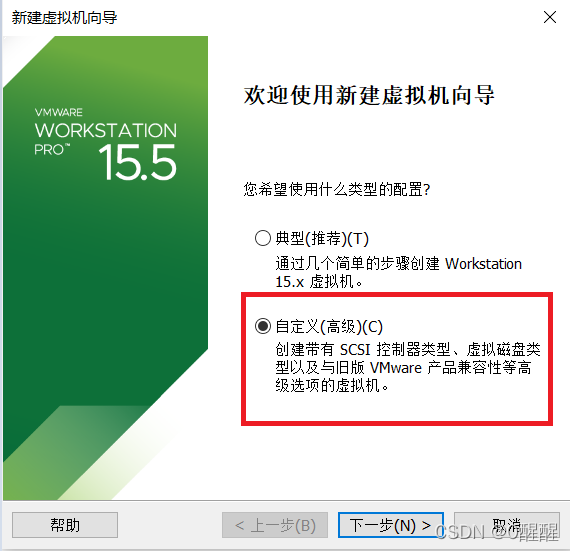













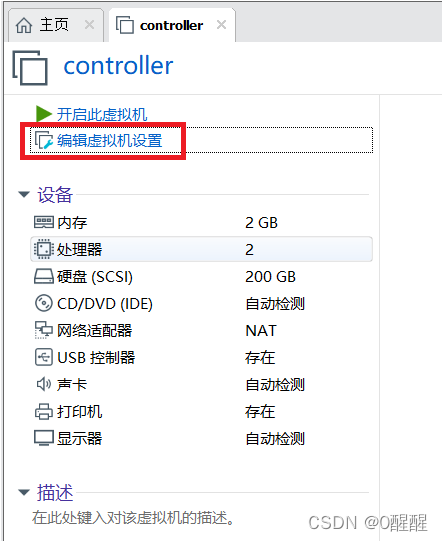

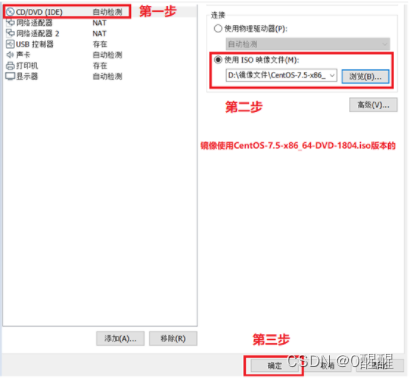









重启后使用root用户登录,然后修改主机名,配置网卡、内核。
1.修改主机名。

2.修改第一块网卡。

修改、添加内容如下 (注:按下i键进入插入模式,按下ESC键,然后输入冒号wq退出)。

3.修改第二块网卡。
![]()
修改、添加内容如下:

重启网卡,使配置生效。
![]()
使用ip a 命令检验配置是否生效。

4.修改内核。

添加内容如下:

刷新内核,然后重启使配置生效。

重启之后使用SecureCRT连上controller节点。(注:连接SecureCRT是为了方便)

注意:VMnet8必须跟controller节点和compute节点在同一个网段才能连接上SecureCRT。

输入密码后,点击“确定”即可连接上SecureCRT。

出现以下图示表示连接成功。

2.compute计算节点
说明:compute节点与controller节点基础环境及安装系统大致相同,可参考controller节点配置,以下是稍有不同的地方。






第一块网卡配置如下:
![]()

第二块网卡配置如下:
![]()

注意:compute节点也需要连上SecureCRT。
三、正式搭建OpenStack云平台
controller节点配置:
1.上传centos7.0镜像和chinaskills_cloud_iaas.iso镜像至controller节点。

centos7.0镜像上传方式如上。
2.关闭防火墙,selinux。
[root@controller ~]# systemctl stop firewalld #关闭防火墙
[root@controller ~]# systemctl disable firewalld #设置防火墙开机不自启
Removed symlink /etc/systemd/system/multi-user.target.wants/firewalld.service.
Removed symlink /etc/systemd/system/dbus-org.fedoraproject.FirewallD1.service.
[root@controller ~]# setenforce 0 #临时关闭selinux防火墙,0表示关闭,1表示开启
[root@controller ~]# getenforce #查看selinux防火墙的状态
Permissive
[root@controller ~]# vi /etc/selinux/config #非临时性
[root@controller ~]#
selinux配置文件内容修改如下:

3.挂载镜像
查看镜像是否已上传。


挂载镜像。
[root@controller ~]# mount -o loop CentOS-7-x86_64-DVD-1804.iso /mnt/
mount: /dev/loop0 写保护,将以只读方式挂载
[root@controller ~]# mkdir /opt/centos
[root@controller ~]# cp -rf /mnt/* /opt/centos/
[root@controller ~]# umount /mnt/
[root@controller ~]# mount -o loop chinaskills_cloud_iaas.iso /mnt/
mount: /dev/loop0 写保护,将以只读方式挂载
[root@controller ~]# cp -rf /mnt/* /opt/
[root@controller ~]# umount /mnt/
[root@controller ~]# 4.yum源文件处理
移除原yum源。
[root@controller ~]# cd /etc/yum.repos.d/
[root@controller yum.repos.d]# mv * /media/
[root@controller yum.repos.d]# ls
[root@controller yum.repos.d]# 写yum源文件。
[root@controller yum.repos.d]# vi local.repo
[root@controller yum.repos.d]# cat local.repo
[centos]
name=centos
baseurl=file:///opt/centos
gpgcheck=0
enabled=1
[iaas]
name=iaas
baseurl=file:///opt/iaas-repo
gpgcheck=0
enabled=1
[root@controller yum.repos.d]# 清除yum源缓存,验证yum源,下载所需软件包。
[root@controller yum.repos.d]# yum clean all #清除yum源缓存
已加载插件:fastestmirror
正在清理软件源: centos iaas
Cleaning up everything
Maybe you want: rm -rf /var/cache/yum, to also free up space taken by orphaned data from disabled or removed repos
Cleaning up list of fastest mirrors
[root@controller yum.repos.d]# yum repolist #列出所有可用的yum源
已加载插件:fastestmirror
Determining fastest mirrors
centos | 3.6 kB 00:00:00
iaas | 2.9 kB 00:00:00
(1/3): centos/group_gz | 166 kB 00:00:00
(2/3): centos/primary_db | 3.1 MB 00:00:00
(3/3): iaas/primary_db | 1.4 MB 00:00:00
源标识 源名称 状态
centos centos 3,971
iaas iaas 3,232
repolist: 7,203
[root@controller yum.repos.d]# yum install -y vim vsftpd iaas-xiandian #安装所需的软件包5.配置vsftpd。
[root@controller yum.repos.d]# echo anon_root=/opt/ >> /etc/vsftpd/vsftpd.conf #设置匿名访问
[root@controller yum.repos.d]# systemctl restart vsftpd #重启ftp服务
[root@controller yum.repos.d]# systemctl enable vsftpd #设置ftp服务开机自启
Created symlink from /etc/systemd/system/multi-user.target.wants/vsftpd.service to /usr/lib/systemd/system/vsftpd.service.
[root@controller yum.repos.d]#
6.修改脚本。
[root@controller ~]# vim /etc/xiandian/openrc.sh注:在非插入模式下按下Ctrl+v——shift+g——D可删除注释符号。
#--------------------system Config--------------------##
#Controller Server Manager IP. example:x.x.x.x
HOST_IP=192.168.100.10 #controller节点的IP地址
#Controller HOST Password. example:000000
HOST_PASS=000000
#Controller Server hostname. example:controller
HOST_NAME=controller
#Compute Node Manager IP. example:x.x.x.x
HOST_IP_NODE=192.168.100.20 #compute节点的IP地址
#Compute HOST Password. example:000000
HOST_PASS_NODE=000000
#Compute Node hostname. example:compute
HOST_NAME_NODE=compute
#--------------------Chrony Config-------------------##
#Controller network segment IP. example:x.x.0.0/16(x.x.x.0/24)
network_segment_IP=192.168.100.0/24 #controller节点所在的网段
#--------------------Rabbit Config ------------------##
#user for rabbit. example:openstack
RABBIT_USER=openstack
#Password for rabbit user .example:000000
RABBIT_PASS=000000
#--------------------MySQL Config---------------------##
#Password for MySQL root user . exmaple:000000
DB_PASS=000000
#--------------------Keystone Config------------------##
#Password for Keystore admin user. exmaple:000000
DOMAIN_NAME=demo
ADMIN_PASS=000000
DEMO_PASS=000000
#Password for Mysql keystore user. exmaple:000000
KEYSTONE_DBPASS=000000
#--------------------Glance Config--------------------##
#Password for Mysql glance user. exmaple:000000
GLANCE_DBPASS=000000
#Password for Keystore glance user. exmaple:000000
GLANCE_PASS=000000
#--------------------Nova Config----------------------##
#Password for Mysql nova user. exmaple:000000
NOVA_DBPASS=000000
#Password for Keystore nova user. exmaple:000000
NOVA_PASS=000000
#--------------------Neturon Config-------------------##
#Password for Mysql neutron user. exmaple:000000
NEUTRON_DBPASS=000000
#Password for Keystore neutron user. exmaple:000000
NEUTRON_PASS=000000
#metadata secret for neutron. exmaple:000000
METADATA_SECRET=000000
#Tunnel Network Interface. example:x.x.x.x
INTERFACE_IP=192.168.100.10 #本机IP地址
#External Network Interface. example:eth1
INTERFACE_NAME=eth1
#External Network The Physical Adapter. example:provider
Physical_NAME=provider
#First Vlan ID in VLAN RANGE for VLAN Network. exmaple:101
minvlan=101
#Last Vlan ID in VLAN RANGE for VLAN Network. example:200
maxvlan=200
#--------------------Cinder Config--------------------##
#Password for Mysql cinder user. exmaple:000000
CINDER_DBPASS=000000
#Password for Keystore cinder user. exmaple:000000
CINDER_PASS=000000
#Cinder Block Disk. example:md126p3
BLOCK_DISK=sdb1 #compute节点的存储块
#--------------------Swift Config---------------------##
#Password for Keystore swift user. exmaple:000000
SWIFT_PASS=000000
#The NODE Object Disk for Swift. example:md126p4.
OBJECT_DISK=sdb2 #compute节点的存储块
#The NODE IP for Swift Storage Network. example:x.x.x.x.
STORAGE_LOCAL_NET_IP=192.168.100.20 #compute节点的IP地址
#--------------------Heat Config----------------------##
#Password for Mysql heat user. exmaple:000000
HEAT_DBPASS=000000
#Password for Keystore heat user. exmaple:000000
HEAT_PASS=000000
#--------------------Zun Config-----------------------##
#Password for Mysql Zun user. exmaple:000000
ZUN_DBPASS=000000
#Password for Keystore Zun user. exmaple:000000
ZUN_PASS=000000
#Password for Mysql Kuryr user. exmaple:000000
KURYR_DBPASS=000000
#Password for Keystore Kuryr user. exmaple:000000
KURYR_PASS=000000
#--------------------Ceilometer Config----------------##
#Password for Gnocchi ceilometer user. exmaple:000000
CEILOMETER_DBPASS=000000
#Password for Keystore ceilometer user. exmaple:000000
CEILOMETER_PASS=000000
#--------------------AODH Config----------------##
#Password for Mysql AODH user. exmaple:000000
AODH_DBPASS=000000
#Password for Keystore AODH user. exmaple:000000
AODH_PASS=000000
#--------------------Barbican Config----------------##
#Password for Mysql Barbican user. exmaple:000000
BARBICAN_DBPASS=000000
#Password for Keystore Barbican user. exmaple:000000
BARBICAN_PASS=000000compute节点配置:
1.关闭防火墙,selinux。
[root@compute ~]# systemctl stop firewalld
[root@compute ~]# systemctl disable firewalld
Removed symlink /etc/systemd/system/multi-user.target.wants/firewalld.service.
Removed symlink /etc/systemd/system/dbus-org.fedoraproject.FirewallD1.service.
[root@compute ~]# setenforce 0
[root@compute ~]# getenforce
Permissive
[root@compute ~]# vi /etc/selinux/config 
2.硬盘分区。
[root@compute ~]# fdisk /dev/sdb
欢迎使用 fdisk (util-linux 2.23.2)。
更改将停留在内存中,直到您决定将更改写入磁盘。
使用写入命令前请三思。
Device does not contain a recognized partition table
使用磁盘标识符 0x34bc5373 创建新的 DOS 磁盘标签。
命令(输入 m 获取帮助):n
Partition type:
p primary (0 primary, 0 extended, 4 free)
e extended
Select (default p):
Using default response p
分区号 (1-4,默认 1):
起始 扇区 (2048-209715199,默认为 2048):
将使用默认值 2048
Last 扇区, +扇区 or +size{K,M,G} (2048-209715199,默认为 209715199):+25G
分区 1 已设置为 Linux 类型,大小设为 25 GiB
命令(输入 m 获取帮助):n
Partition type:
p primary (1 primary, 0 extended, 3 free)
e extended
Select (default p):
Using default response p
分区号 (2-4,默认 2):
起始 扇区 (52430848-209715199,默认为 52430848):
将使用默认值 52430848
Last 扇区, +扇区 or +size{K,M,G} (52430848-209715199,默认为 209715199):+25G
分区 2 已设置为 Linux 类型,大小设为 25 GiB
命令(输入 m 获取帮助):w
The partition table has been altered!
Calling ioctl() to re-read partition table.
正在同步磁盘。
[root@compute ~]# lsblk
NAME MAJ:MIN RM SIZE RO TYPE MOUNTPOINT
sda 8:0 0 200G 0 disk
├─sda1 8:1 0 1G 0 part /boot
└─sda2 8:2 0 199G 0 part
├─centos-root 253:0 0 50G 0 lvm /
├─centos-swap 253:1 0 2G 0 lvm [SWAP]
└─centos-home 253:2 0 147G 0 lvm /home
sdb 8:16 0 100G 0 disk
├─sdb1 8:17 0 25G 0 part
└─sdb2 8:18 0 25G 0 part
sr0 11:0 1 4.2G 0 rom
[root@compute ~]# 3.yum源文件处理。
移除原yum源。
[root@compute ~]# cd /etc/yum.repos.d/
[root@compute yum.repos.d]# mv * /media/
[root@compute yum.repos.d]# ls
[root@compute yum.repos.d]# 写yum源文件。
[root@compute yum.repos.d]# vi local.repo
[root@compute yum.repos.d]# cat local.repo
[centos]
name=centos
baseurl=ftp://192.168.100.10/centos
gpgcheck=0
enabled=1
[iaas]
name=iaas
baseurl=ftp://192.168.100.10/iaas-repo
gpgcheck=0
enabled=1
[root@compute yum.repos.d]#清除yum源缓存,验证yum源,下载所需软件包。
[root@compute yum.repos.d]# yum clean all
已加载插件:fastestmirror
正在清理软件源: centos iaas
Cleaning up everything
Maybe you want: rm -rf /var/cache/yum, to also free up space taken by orphaned data from disabled or removed repos
[root@compute yum.repos.d]# yum repolist
已加载插件:fastestmirror
Determining fastest mirrors
centos | 3.6 kB 00:00:00
iaas | 2.9 kB 00:00:00
(1/3): centos/group_gz | 166 kB 00:00:00
(2/3): centos/primary_db | 3.1 MB 00:00:00
(3/3): iaas/primary_db | 1.4 MB 00:00:00
源标识 源名称 状态
centos centos 3,971
iaas iaas 3,232
repolist: 7,203
[root@compute yum.repos.d]# yum install -y vim iaas-xiandian4.修改脚本。
将controller节点的脚本复制至compute节点。
[root@compute ~]# scp 192.168.100.10:/etc/xiandian/openrc.sh /etc/xiandian/openrc.sh
The authenticity of host '192.168.100.10 (192.168.100.10)' can't be established.
ECDSA key fingerprint is SHA256:3fUEo7XuafRBPMtY2rSnpjKOdGSrLnE68O2aZAXEp6o.
ECDSA key fingerprint is MD5:4b:73:20:24:30:ad:6a:31:86:fa:26:55:47:92:99:cc.
Are you sure you want to continue connecting (yes/no)? yes
Warning: Permanently added '192.168.100.10' (ECDSA) to the list of known hosts.
root@192.168.100.10's password:
openrc.sh 100% 3820 1.9MB/s 00:00
[root@compute ~]# 需要修改compute节点的脚本。
[root@compute ~]# vim /etc/xiandian/openrc.sh修改内容如下:
![]()
四、刷脚本。
controller节点需要刷以下脚本。
[root@controller ~]# iaas-pre-host.sh #刷完该脚本后需要重启
......
[root@controller ~]# iaas-install-mysql.sh
......
[root@controller ~]# iaas-install-keystone.sh
......
[root@controller ~]# source /etc/keystone/admin-openrc.sh #使环境生效
[root@controller ~]# iaas-install-glance.sh
......
[root@controller ~]# iaas-install-nova-controller.sh
......
[root@controller ~]# iaas-install-neutron-controller.sh
......
[root@controller ~]# iaas-install-dashboard.sh
......compute节点需要刷以下脚本。
[root@compute ~]# iaas-pre-host.sh #刷完该脚本后需要重启
......
[root@compute ~]# iaas-install-nova-compute.sh
......
[root@compute ~]# iaas-install-neutron-compute.sh
......五、登录OpenStack云平台
在浏览器中输入http://192.168.100.10/dashboard。

出现以下图示表示云平台搭建成功。

